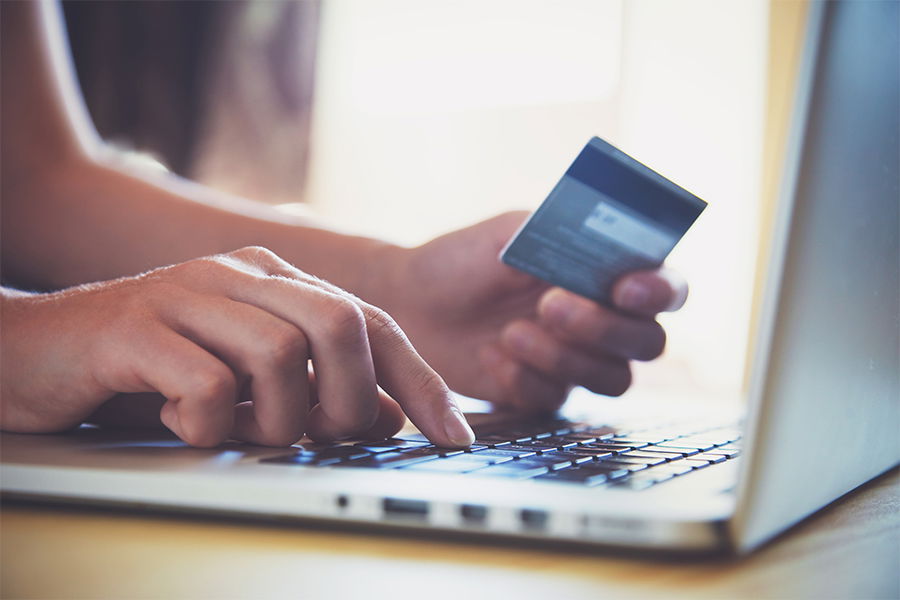You need to build credit, but you’ve been denied for traditional credit cards. Maybe your credit score is too low, or maybe you don’t have any credit history at all. Either way, it feels like a dead end.
That’s where secured credit cards come in. They’re one of the few tools that can help you build or rebuild your credit when other doors are closed.

These cards work a little differently—they require a refundable deposit and typically start with low limits. But they report your payments to all three major credit bureaus, which gives you a real chance to prove you’re creditworthy.
If you use them the right way, secured credit cards can open the door to better credit scores, lower interest rates, and more financial freedom. Here’s how to make one work for you.
What is a secured credit card?
A secured credit card is a type of credit card that requires a cash deposit upfront. That deposit usually becomes your credit limit. If you put down $300, your limit is $300. It’s your money, but the card issuer holds it as collateral in case you don’t pay your bill.
In every other way, it works like a regular credit card. You can use it to make purchases, get billed monthly, and pay off what you owe. The big difference is that a secured card is designed for people with no credit or bad credit—so approval is much more likely.
The deposit reduces risk for the lender, which is why secured cards are one of the easiest ways to get started with credit.
How Secured Cards Help Build Credit
Secured credit cards help you build credit because they report your activity to the three major credit bureaus: Experian, Equifax, and TransUnion. That means your payment history, credit usage, and account age all start working for—or against—you.
If you make on-time payments and keep your balance low, your credit score will improve. Over time, you may even qualify for a traditional unsecured credit card, a loan, or a mortgage with better rates.
The key is consistency. Use the card each month, pay it off in full, and avoid hitting your credit limit. When used right, a secured card shows lenders that you’re responsible—and that’s what builds your credit score.
5 Smart Reasons to Use a Secured Credit Card
Secured credit cards aren’t just a last resort—they’re a smart move for anyone who wants to establish or rebuild credit. Here’s why they work:
- You can get approved with bad credit or no credit – Secured cards are designed for people who can’t qualify for traditional credit cards. Your credit score doesn’t matter as much because your deposit reduces the lender’s risk.
- Your payment history gets reported to all three credit bureaus – As long as you pay your bill on time, your credit report will reflect that. This is the fastest way to start building positive credit history.
- You only need to use it lightly to see results – You don’t have to rack up big charges. A few small purchases each month, paid off in full, are enough to move your score in the right direction.
- There’s a built-in safety net – Your credit limit is tied to your deposit, which helps prevent overspending. It’s a great way to learn how to manage credit without risking more than you can afford.
- It’s a stepping stone to better credit products – Many secured cards offer a path to upgrade. Once your credit improves, you can move on to unsecured cards with better perks, and you’ll get your deposit back.
What to Look For in a Secured Card
Not all secured credit cards are created equal. Some come with high fees or harsh terms, while others are more flexible and reward good behavior. Here’s what to compare when choosing the right one:
- Low or no annual fee – Look for a card that won’t cost you much just to keep open. Many secured cards have no annual fee at all.
- Reasonable deposit requirements – Some cards let you open an account with as little as $49. Others require $200 or more. Choose one that fits your budget.
- Reports to all three credit bureaus – This is a must. If your card doesn’t report to Experian, Equifax, and TransUnion, it won’t help your credit score.
- Clear upgrade path – Some issuers will review your account after a few months and upgrade you to an unsecured card automatically. This is ideal because it builds credit history without requiring a new account.
- Extra perks or benefits – A few secured cards offer cash back, access to your credit score, or other useful features. These extras can add value while you build your credit.
- Low interest rate (if you carry a balance) – Ideally, you’ll pay your balance in full each month. But if you ever need to carry a balance, a lower APR will reduce how much you owe in interest.
Choose a card that checks as many of these boxes as possible. It’ll make the process of building credit smoother and more rewarding.
Top Secured Card Picks
There are dozens of secured credit cards on the market, but some stand out for their low fees, easy approval, and extra features. Here are three top picks that make it easier to build credit:
Chime Card
The Chime Card combines credit building, cash back rewards, early payday access, and fee-free banking in one product. There is no annual fee, no interest charges, and no credit check required. Instead of a traditional security deposit, you set your spending limit by moving money from your Chime Checking Account into your Chime Card account.
To unlock all features—including 1.5% cash back on rotating categories and access to your paycheck up to two days early—you need a Chime Checking Account and at least $200 in qualifying direct deposits. Chime reports your on-time payments to all three major credit bureaus, making it a simple and low-cost way to build credit while earning rewards.
Discover it® Secured Credit Card
The Discover it® Secured card offers cash back—something most secured cards don’t. You’ll earn 2% on gas station and restaurant purchases (up to $1,000 per quarter) and 1% on everything else.
There’s no annual fee, and Discover reports to all three credit bureaus. After seven months, you may qualify for an upgrade to an unsecured card and get your deposit back.
Capital One® Platinum Secured Credit Card
Capital One lets some users open a Platinum Secured from Capital One® card with a deposit as low as $49. The card has no annual fee and reports to all three credit bureaus. After five months of on-time payments, you could be eligible for a higher credit limit with no extra deposit.
It also includes added perks like access to your FICO score, so you can track your progress while you build credit. It’s a simple card with a clear path to building credit and moving up.
These cards offer strong benefits for first-time or credit-challenged borrowers—and they don’t lock you into high fees or long commitments.
How to Use a Secured Credit Card to Build Credit
Getting a secured card is only the first step. The way you use it will determine whether it helps or hurts your credit. Follow these simple strategies to get the most benefit:
- Always pay on time: Payment history is the biggest factor in your credit score. Late payments can do serious damage, so set up reminders or autopay to make sure you never miss a due date.
- Keep your balance low: Your credit utilization ratio matters. Try to stay below 30% of your credit limit at all times. On a $500 card, that means keeping your balance under $150.
- Use it regularly, but lightly: You don’t need to make big purchases. Just use the card for small recurring expenses—like a streaming subscription or gas—and pay it off in full each month.
- Avoid interest by paying in full: Most secured cards have high interest rates. The best way to avoid paying extra is to pay off your full statement balance before it’s due.
- Don’t treat it like free money: This card is a credit-building tool, not a spending pass. Use it with discipline, and it will work in your favor. Overspend or pay late, and you’ll go backward.
Final Thoughts
Secured credit cards give you a second chance—or a first one—to build credit when other options are off the table. They’re simple, accessible, and proven to work when used the right way.
If you stay consistent, make your payments on time, and keep your balance low, a secured card can open the door to better rates, better rewards, and more financial freedom. It’s not about where your credit is today—it’s about where it could be a few months from now.
Frequently Asked Questions
How long should I keep a secured credit card open?
Keep the card open at least until your credit score improves enough to qualify for a better credit product. Closing it too soon could hurt your credit by reducing your average account age and credit limit. In many cases, it’s smart to keep it open until you’ve replaced it with a stronger unsecured card.
How much will a secured credit card raise my credit score?
There’s no fixed number, since it depends on your starting point and overall credit history. But if you use your secured credit card consistently—by paying on time and keeping your balance low—you can expect to see steady improvement in your credit score over time. Many people see results within a few months.
Can I have more than one secured credit card?
Yes, but it’s usually best to start with one. Managing multiple cards means more due dates to track and more deposits to tie up. Once you’ve shown you can use one card responsibly, adding a second card could help improve your credit mix and increase your total available credit—just make sure you can manage both accounts without missing payments.
Are credit builder loans a good alternative to secured cards?
They can be. Credit builder loans are small installment loans where the money is held in a savings account until you’ve paid it off. Just like secured cards, they report your payments to the credit bureaus. If you don’t want to open a credit card or need to strengthen your mix of credit types, a credit builder loan is a smart option to consider.




